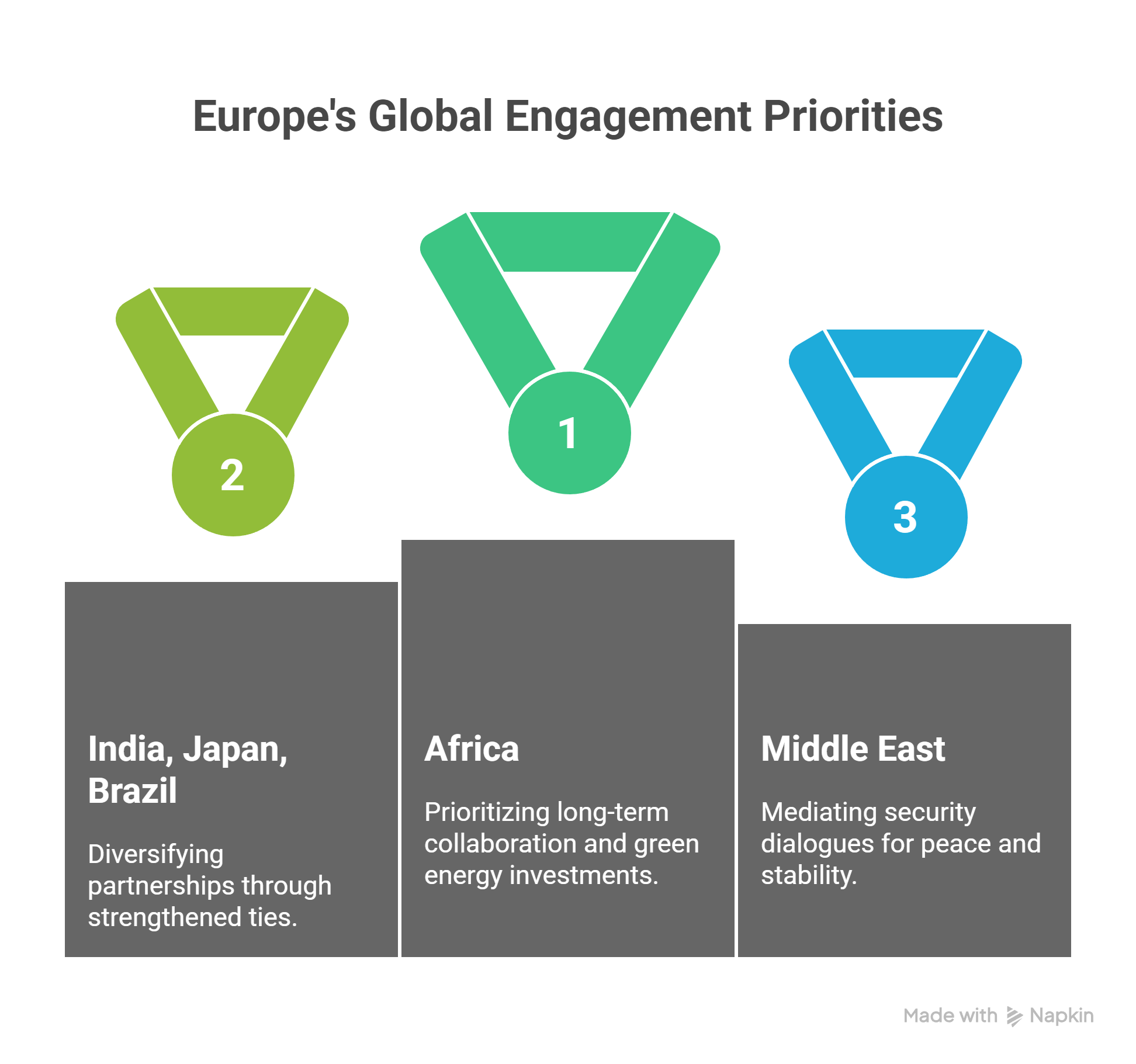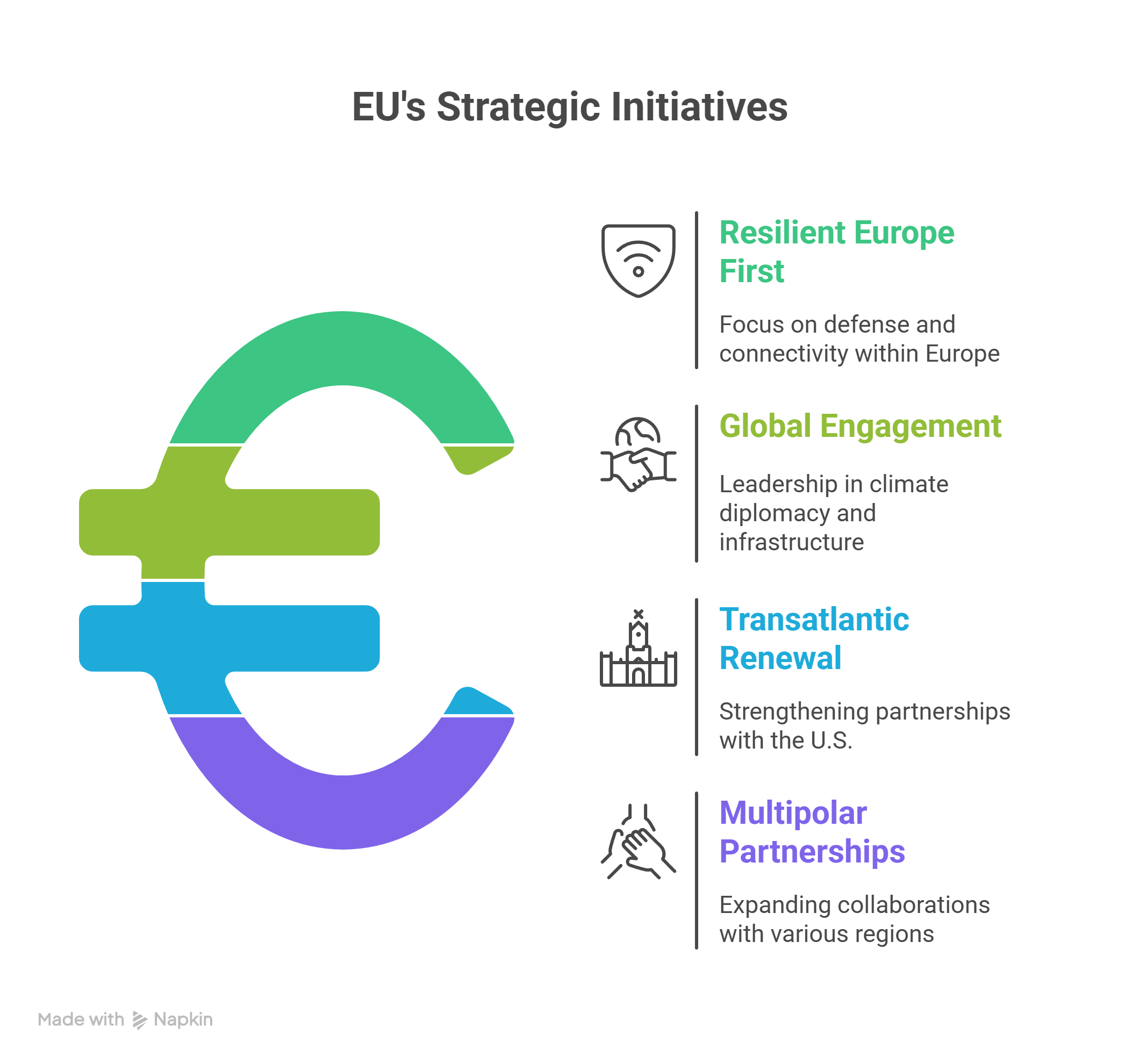The Hague, Netherlands, August 21, 2025 — As Europe confronts shifting alliances, rising security threats, and the urgency of climate action, Germany is recalibrating its foreign policy. Guided by resilience as both strategy and identity, Berlin seeks not only to secure European stability but also to expand the continent’s influence on the global stage.
A Europe Anchored by Resilience
In 2025, Germany has placed resilience at the core of its foreign policy mission: fortifying Europe’s institutions, safeguarding supply chains, and diversifying energy partnerships.
According to data from the German Foreign Office, EU defense investments rose by 11% in 2024, with Germany contributing the largest share. The focus is shifting from crisis response to long-term capacity building—particularly in cyber defense, green technology, and energy independence.
“Resilience is no longer about reacting to crises,” one senior official in Berlin noted. “It’s about designing systems that anticipate shocks before they spiral into existential threats.”
Balancing European Unity with Global Responsibilities
Chancellor Annalena Baerbock recently underscored the dual mission of German foreign policy: “Our resilience is measured not only by how we protect ourselves, but also by how we shape the world beyond our borders.”
That ambition is evident in Germany’s push for:
- A European Connectivity Strategy, positioned as a counterweight to China’s Belt and Road, including plans for African broadband infrastructure and cross-continental rail links.
- Greater diplomatic presence in the Indo-Pacific, strengthening ties with India and Japan.
- Leadership in G7 climate negotiations and renewed efforts to secure permanent EU representation in global forums.
Transatlantic Partnerships: Tested but Revived
Germany continues to value its transatlantic ties with Washington, though the relationship has evolved beyond NATO’s military framework. Today, joint efforts focus on AI regulation, resilient supply chains, and sanctions coordination.
A major sign of progress: joint U.S.–German investments in quantum computing have surged 35% in just two years. Officials describe this as a pivot toward “strategic technology partnerships” that secure both innovation and resilience.
Strategic Engagement Beyond the West
Germany’s foreign relations strategy reflects a multipolar world. Berlin is:
- Strengthening ties with India, Japan, and Brazil to diversify partnerships.
- Investing heavily in Africa, where green energy investments grew 22% in 2024, prioritizing long-term collaboration over short-term aid.
- Acting as a mediator in the Middle East, hosting security dialogues between Gulf states and European representatives to bolster Europe’s role as a peace broker.

The Path Forward: Resilience as Strategic Identity
For Berlin, resilience is not merely a response mechanism—it is the foundation of Europe’s long-term identity. By reducing dependencies, investing in regional capacity, and shaping global standards on technology and climate, Germany envisions a Europe that is not a passive participant but an active architect of the international order.
If successful, Germany’s approach could redefine Europe’s global image: not only as an ally or economic bloc, but as a leader shaping the rules of the 21st century.
Policy Brief
Date: August 21, 2025 | Prepared for: Policymakers & Strategic Analysts
Key Message: Germany’s foreign policy defines resilience as Europe’s cornerstone. Through security investment, global engagement, and strategic partnerships, Berlin is positioning Europe to both safeguard its internal stability and extend its influence globally.
Core Pillars:
- Resilient Europe First – 11% rise in EU defense spending, cyber defense expansion, European Connectivity Strategy.
- Global Engagement – Leadership in climate diplomacy, sustainable infrastructure in Africa, stronger Indo-Pacific ties.
- Transatlantic Renewal – Strategic tech partnerships with the U.S., sanctions alignment, joint AI regulation.
- Multipolar Partnerships – Growing green energy investments in Africa, expanded dialogue with India and Brazil, mediation in the Middle East.

Strategic Implications: Germany positions itself as Europe’s geopolitical architect, bridging U.S. leadership and Asian influence while institutionalizing resilience as a European doctrine.
